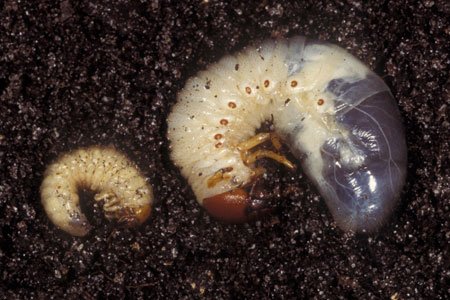
Grub worms are the larvae of beetles, and their life cycle has some fascinating twists and turns. Just like how some animals find a warm cave or a comfy den, grub worms have their own survival techniques. Understanding whether they hibernate can help gardeners and lawn enthusiasts take better care of their yards. After all, learning about the tiny creatures underneath our feet can give us a whole new appreciation for our green spaces!
What Are Grub Worms?
Before we dive into the hibernation question, let’s get to know grub worms a bit better. Generally, these critters are the larvae of various beetles, like the Japan beetle or the masked chafer beetle. They’re usually white to cream-colored, have a c-shaped body, and can be about an inch long.
Grub worms play a significant role in the ecosystem, breaking down organic matter as they munch on roots and decaying leaves. However, they can also become a gardener’s nightmare if their population grows too large, leading to unhealthy grass and plants. You might think of them as tiny recyclers, helping to keep nature tidy, but their presence can be a double-edged sword, especially in our lawns.
Do Grub Worms Hibernate?
Here’s the thing: grub worms don’t exactly *hibernate* in the traditional sense. Instead, they enter a state of dormancy during the winter months. Think of it like hitting the ‘pause’ button. When the ground gets too cold, they burrow deeper into the soil, usually around 4 to 10 inches down, where temperatures remain more stable.
By going underground, grub worms protect themselves from freezing temperatures and harsh winter conditions. This dormancy lasts until the temperatures start to rise again in spring, when they emerge ready to feast on grass roots once more. If you’re wondering how they know when to wake up, it’s all about temperature changes in the soil!
How Do Grub Worms Survive the Cold?
During winter, grub worms have a clever way of surviving the cold. They rely on the insulation provided by the soil above them. Think of this as their cozy blanket. The deeper they are in the ground, the warmer it tends to be, which helps keep them away from the frost that can be deadly.
Grub worms have also adapted to withstand the cold. Their bodies contain substances that act like antifreeze, preventing ice from forming inside them. It’s pretty amazing when you think about it—nature equips these little guys with the tools they need to survive in tough conditions, just like how some animals grow thicker fur or migrate to warmer climates.
Signs of Grub Worm Activity
As winter rolls into spring, you might notice some signs that grub worms are waking up. If you have a garden or lawn, keep an eye out for:
- Brown patches on the grass: If your lawn looks like it’s having a bad hair day, it could be a sign of grub worms munching away at the roots.
- Increased animal activity: Birds and other wildlife often scratch at the ground searching for food, which can indicate grub worms are active.
- Soft spots: If your lawn feels squishy or soft when you walk on it, check for grubs lurking beneath the surface.
If you spot these signs as spring arrives, it might be time for some lawn care strategies to manage those pesky grubs.
How to Manage Grub Worms
If grub worms are causing problems in your garden, you’ve got options. Here are some strategies you can consider:
- Cultural Controls: Keeping your lawn healthy through proper watering, mowing, and fertilizing can help make it less attractive to grubs.
- Biological Control: Introducing beneficial nematodes into your lawn can effectively help control grub populations without harsh chemicals.
- Chemical Treatments: If the problem is severe, there are pesticides specifically designed for grub control, but always read labels and use them responsibly.
Each method has its pros and cons, so it’s essential to choose what works best for your specific situation. Remember, a little prevention goes a long way!
So, do grub worms hibernate during winter? Not quite! They enter a state of dormancy, burrowing deep into the soil to ride out the cold. Understanding this behavior can help you keep a closer eye on your lawn and garden as the seasons change. As spring approaches and the ground warms, these little critters will awaken and resume their role in the ecosystem. By knowing how to manage them, you can enjoy a healthier, greener yard without too much hassle. Grub worms might be small, but their impact on our gardens is anything but tiny!
